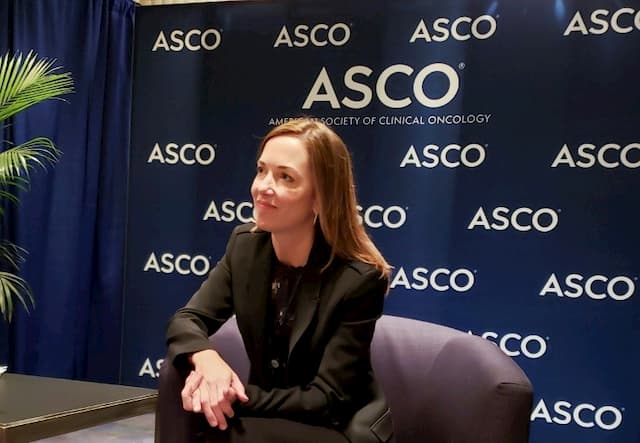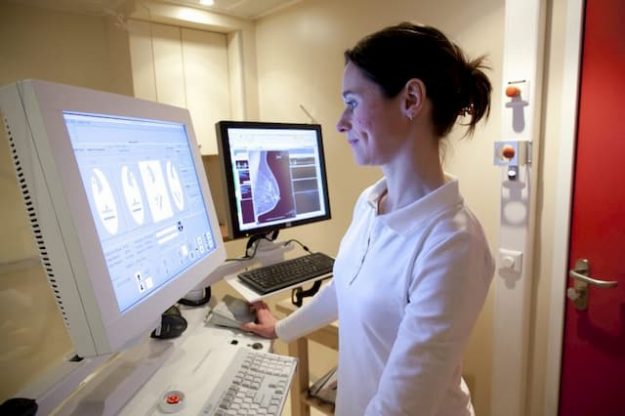Breast Cancer: A New Type of Treatment Increases the Survival Rate

This treatment developed in Chicago (USA) would push the survival rate up to 70% of women with breast cancer. Details.
A new type of treatment can significantly improve women’s survival rates of less than 60 years with the most common type of breast cancer , announced Saturday 1st June 2019 researchers in Chicago, presenting the results of a international clinical trial .
This research shows that adding a cell cycle inhibitor, ribociclib , to treatment increases the survival rate to 70% after three and a half years.
The mortality rate among patients who received this treatment was 29% lower than those who received a placebo, according to the results presented at the annual conference of the American Society of Clinical Oncology (ASCO) which brings together this weekend international cancer specialists.
“Get a better answer”
The study focused on patients with breast cancer hormone, which represents two thirds of all cases of breast cancer in women before menopause, told the AFP lead author of the works, Sara Hurvitz.
These patients usually receive treatments to block the production of estrogen.
“One can actually get a better answer (…), or better kill the cancer, by adding one of these cell cycle inhibitors in addition to hormone therapy.”
This treatment is less toxic than traditional chemotherapy because it specifically targets cancer cells, preventing them from multiplying.
670 cases studied with advanced cancer
The clinical trial is based on more than 670 cases, involving only women under age 59 who were at advanced stages of cancer, stage 4, and who had not previously received anti-hormonal treatment.
“These are patients who typically receive their diagnosis at a later stage of their illness because we do not have excellent detection protocols in younger women,” said Hurvitz.

According to Harold Burstein, an oncologist who did not take part in this research, it is indeed an “important study” since it demonstrates that regulating the cell cycle, through cyclin-dependent kinases (CDK ), “Results in a noticeable improvement” in the survival rate.
Harold Burstein works at the American Dana-Farber Cancer Institute in Boston.
The clinical trial was partly funded by the Novartis pharmaceutical group.
Enjoyed this? Get the week’s top France stories
One email every Sunday. Unsubscribe anytime.


